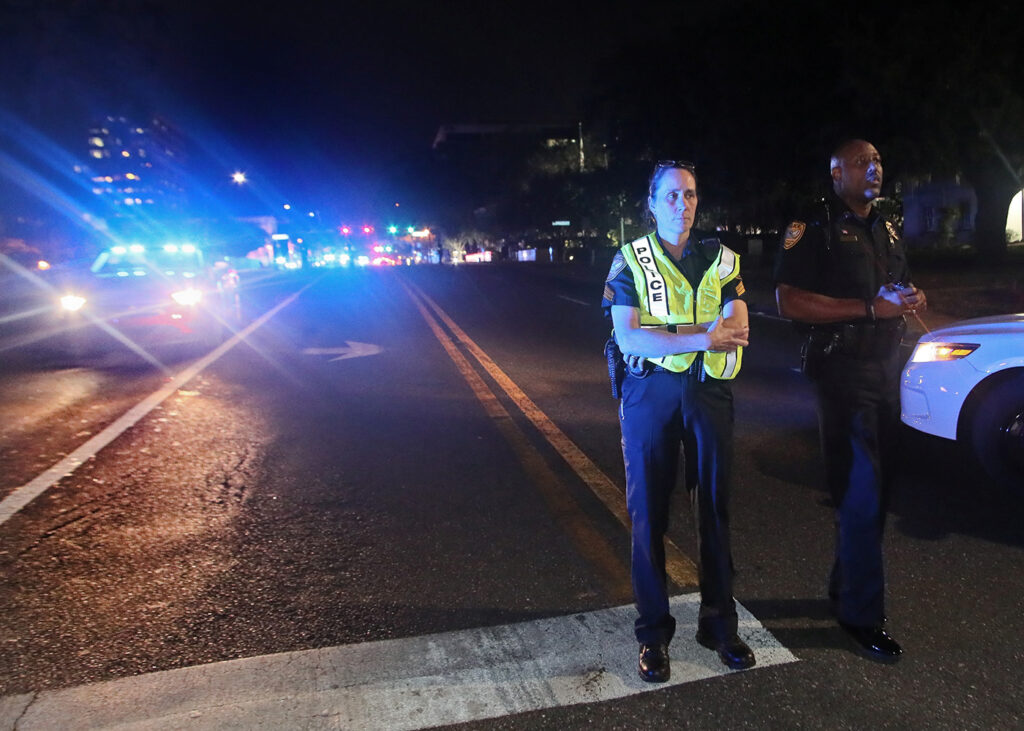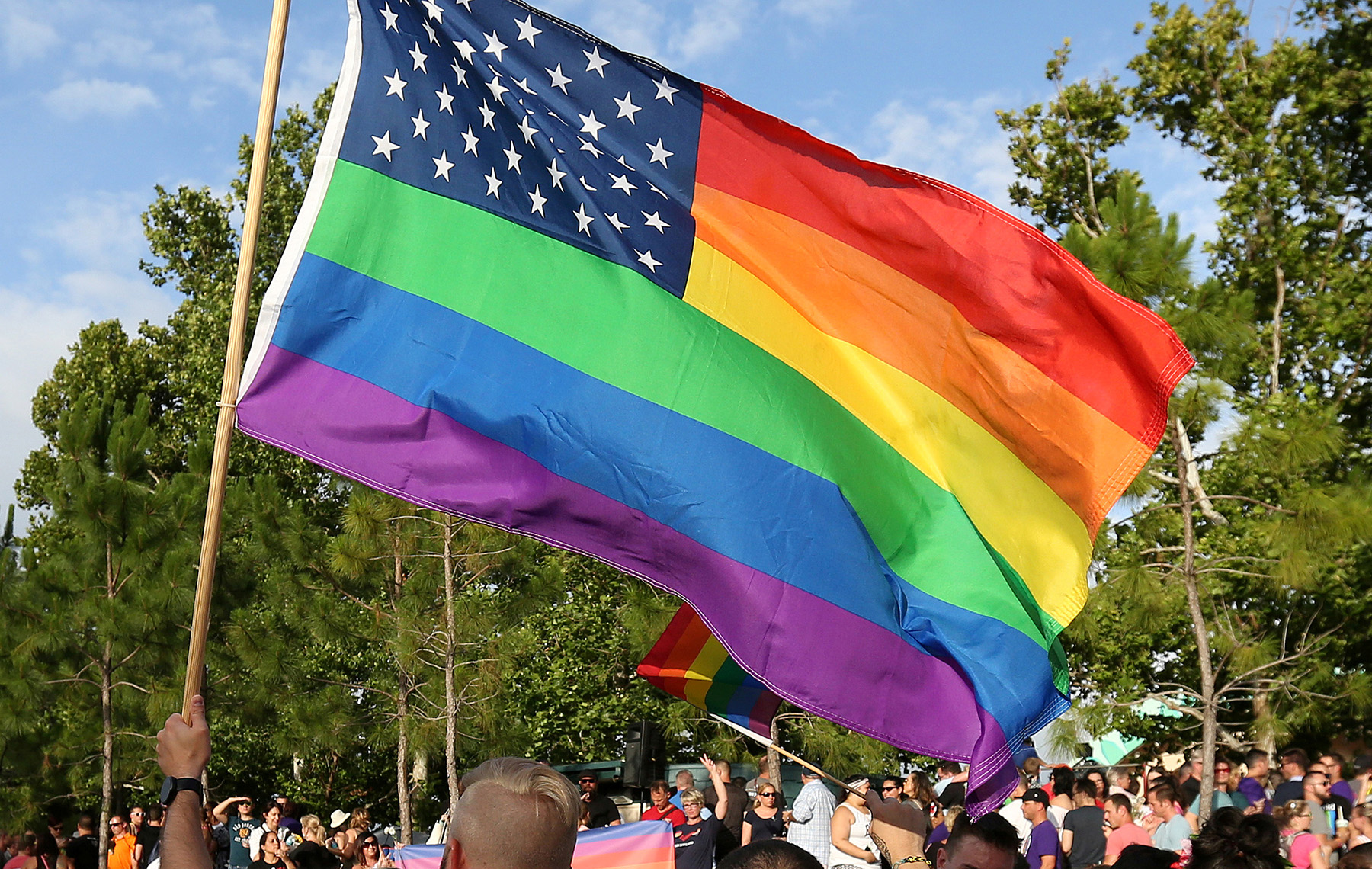The City of Tallahassee filed a motion to dismiss a lawsuit on Jan. 5 filed by a former Citizens Police Review Board member who was voted off the board because of an “abolish police” sticker on her cup.
Taylor Biro, a former member of Tallahassee’s Citizens Police Review Board, (CPRB), sued the city Dec. 13 for violating her First Amendment right to freedom of expression. Biro was ousted from the board Dec. 7 in a 3-2 vote of the Tallahassee Board of Commissioners who believed the sticker was in opposition to the board’s mission, which is to act as an “unbiased panel” with the purpose of “foster[ing] transparency, enhanc[ing] communication, and ensur[ing] a relationship of trust and respect between the Tallahassee Police Department and the community.”
The lawsuit, filed in the U.S. District Court for the Northern District of Florida, argues that Biro is known to the community “as an advocate for police reform” and was appointed to the CPRB in January 2021. The suit also requested $75,000 in attorney’s fees, compensatory damages and lost wages Biro allegedly suffered as a result of her dismissal, despite that members of the board are unpaid volunteers.
According to the complaint, Biro brought the specific cup with the same sticker to review board meetings for two years. But in November 2022 after a presentation of the CPRB’s annual report, Commissioner Diane Williams-Cox stated that Biro “brought a cup that said ‘F the Police,’ which was not accurate.”
“Williams-Cox went on to state that this sticker on Plaintiff’s cup demonstrates that Plaintiff was biased and should be removed from the Review Board, notwithstanding the fact that she has served without incident or complaint for more than two years,” the complaint stated.
The complaint noted that because of this, Biro “was targeted by a slew of Blue Lives Matter Advocates and was harassed in the local news.”
“She has been publicly defamed and false claims or insinuations have been made and supported that Plaintiff is biased against the police, which she is not,” according to the suit.
In Tallahassee’s motion to dismiss, the city notes that Biro’s “open endorsement of the movement to ‘abolish police’ is adversarial, antagonistic, and wholly incompatible with the Board’s mission. It has the effect of—if not the purpose of—inflaming tensions.”
In the summer of 2020, millions protested the killing of George Floyd by Minneapolis police in an effort to urge police department reform, bring attention to police brutality and enhance transparency of police activities with the communities they serve. As a result of this outcry, municipalities across the country created review boards, transparency protocols and enacted community-engaged spaces for people to discuss concerns and possible changes to police departments and their efforts.
The Tallahassee CPRB represents one of these instances of enhanced community engagement with police, and was established in September 2020 after the passing of a city ordinance. The goal of the CPRB is to “increase and demonstrate police accountability and credibility with the public.”
The members of the Tallahassee CPRB are appointed by the city commission. According to the Tallahassee City Commission Policy, “All City appointed citizens serving on committees may be removed from their committee by the City Commission if it is believed it would be in the best interest of the City of Tallahassee.”
In its motion to dismiss Biro’s First Amendment lawsuit, Tallahassee argued that her “anti-police speech … not only rendered her explicitly unqualified for continued appointment to the ‘unbiased’ Board, but also damaged and undermined the working relationship and need for ‘trust’ between the Board and the Department.”
The city noted two main reasons why Biro’s First Amendment claims fail. First, that the “First Amendment does not protect unpaid advisory board appointees from removal by the political body that appointed them;” and second, that “The City’s interests in the Board’s effective and efficient fulfillment of its responsibilities outweigh any First Amendment injury to Plaintiff in surrendering her unpaid volunteer appointment.”
In its filing, Tallahassee cited Lathus v. City Huntington Beach (2021) and describes it as “perhaps the most instructive and explores at length the unique First Amendment considerations at issue in cases of unpaid advisory board appointees.”
In Lathus, according to Tallahassee’s filing, a member of the city council appointed Shayna Lathus to the city’s Citizen Participation Advisory Board as an unpaid volunteer. Lathus was later photographed at a rally allegedly standing with members of “Antifa.” The council member who appointed Lathus requested she denounce Antifa on social media, but Lathus refused. The council member later removed Lathus from the board, and Lathus sued for “unlawful retaliation under the First Amendment.”
The court granted the city’s motion to dismiss and found that Lathus’ appointment was “a political act for which the appointing councilmember remained politically liable and accountable,” the filing stated. On Jan. 5, the U.S. Court of Appeals for the Ninth Circuit upheld the lower district court’s ruling in favor of Huntington Beach.
“The Tallahassee City Commission, a political body, created the Board, defined its membership and limited purpose, appointed its members, and retained the power to withdraw such appointments at any time,” the City of Tallahassee wrote in its motion. Based on decisions in similar cases, such as Lathus, the city contends that “the Commission was politicly (sic) linked to its appointments and was not powerless to disassociate itself from Plaintiff following her public endorsement of anti-police rhetoric.”
Tallahassee does not dispute that Biro’s speech was “made as a citizen on a matter of public concern” or that the particular speech was crucial to the removal of her from the CPRB. But, the city does note that the interest of the city to preserve the “unbiased” nature of the CPRB outweighs Biro’s free speech claims.
“Plaintiff’s anti-police bias thus does not simply impede or diminish the Board’s ability to perform its core duty—it destroys it completely,” Tallahassee’s motion stated.
Jan. 5, 2023 — Biro v. Tallahassee, Tallahassee Motion to Dismiss
Dec. 13, 2022 — Taylor Biro v. City of Tallahassee
Tags



